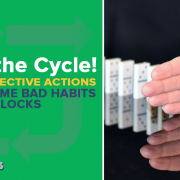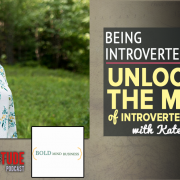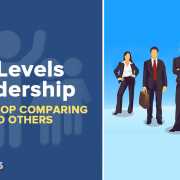Finding Your Success Board – Why It’s Necessary to Surround Yourself with Good People
Have you ever thought back to a time where you met someone super intriguing? Someone who simply made you feel better about the world? And all you had to do was be near them? Maybe you met them when you were in school and they gave you a certain attention that others didn’t? Perhaps it was a colleague you gave you some career guidance?
Hopefully, you’ve lucked into one of these people in some way in your life.
They’re a complete joy to be with.
John Maxwell says that people are like elevators. Some bring you up, and others bring you down.
Personally, I’m all about spending time with people who bring me up. In fact, I try to have a core group of around 5 people in which I bounce ideas and concerns off of on a regular basis.
Why 5? Because Jim Rohn once said that you’re the average of the 5 people you spend the most time with.
If you’re looking to get somewhere in life or with your business, you need to make sure that those people are people YOU’VE chosen and are not placed there randomly by the universe.
YOU have to seek these people out.
So here’s the question – how do you find these people? Well, here’s a few ideas to help you start a process to find these right folks.
Define Your Influencers
Here’s the thing. The 5 people on your Success Board – your Influencers – they need to be sought after and chosen by you. Your immediate family members don’t really count because they’re family and you’re stuck with them. There might be some bias there and there’s a good chance they might not have the life that you’re looking to have someday.
So who does that leave? You’d think the rest of the world, but that’s simply not the case. I wish it was as simple as that!
No, what you and I both have to do is have a way of sorting out the folks that we want in our life. We want to find those that take us up, not down.
How do you do that?
By defining a list of characteristics that you want in those people!
If you take the time to define the vision and the attributes of your inner circle, you could discover those folks who embody those attributes are probably not far away from where you’re at today.
When it comes to those that I surround myself with, here’s a list of characteristics that I thought was important.
Authentic
No one wins when people try to be someone they’re not. Not the person themselves, and certainly not those that think they’re that certain kind of person. Who you are professionally should be a better representation of who you are, but not completely alien.
Intelligent
For me, up til grad school, I knew I always wanted to be around people who had completed their bachelors. The reason I believed I wanted this in my friends and spouse was because for the longest time, academic achievement was how I measured intelligence. (Unfortunately, that’s how it is in most of the world yet today!)
However, when I did get into grad school, I had many huge revelations. One was realizing that there are people who have degrees that aren’t that intelligent (they do whatever they’re told). There’s also those that don’t have degrees who have been super successful in life.
So how do you recognize intelligence? It’s simple. Look for thinkers, dreamers, and people who want to do great things.
Creative
There’s a lot of problems in the world that need to be fixed. We need more people who want to fix those issues themselves or be part of a group that’s making great change. Personally, I don’t have time for people who think “someone should do something about that…”. Do you?
Growth Mentality
It’s been said that if you’re not growing, you’re dying. Or, if you’re not moving forward, you’re moving backward. Either way you look at it, to move forward you have to grow. And to grow, you have to learn.
When searching for people to be part of my Success Board, I like to find out what they are currently learning about. If they’re not learning about something or aren’t readily willing to share what they’ve learned, they might not be the best folks to work with.
I also like to look for people who aren’t happy with where they’re at in life and are actively trying to be more, earn more, and help more.
Aware of Meaningful Current Events
I don’t understand people who live vicariously through others. Watching reality shows has never really been of interest to me. Why? Because I feel that it’s not fair for someone to devote their emotions to an event that doesn’t affect them one way or the other.
When I was younger, I did this way too often. Heck, I’d have a bad week when the Colts lost – but if they won, it’d be a great week! (And of course, those were the weeks where I’d wear a jersey with pride!)
A lot of my friends were the same way about their favorite NFL teams.
However, when they finally won the Super Bowl back in 2007, it got me thinking: how did this affect me personally?
The best response that I came up with was “Well, I guess I can tell future generations that ‘I was there.’” When in reality, I saw it on TV.
Today, anyone can watch that same game on YouTube. It’s not that big of a deal.
What’s going on with the Kardashians or the Royal Family? Who cares? How does watching their life help yours?
What’s going on with your family or the people around you who you care about? What can affect those people? That’s what really matters.
And just for clarity, I’m not saying that you and the folks you surround yourself with should not pay attention to pop culture at all. What I am saying is that we all need to find the things that are interesting to the REAL us. If you’re a bit dorky like I am, then enjoy your Sci-Fi. But ask yourself why you liked that series or movie. Was it worth the time you put into it?
Are you really into music? Why are you into that particular song or group?
These aren’t just questions we should be asking ourselves, but also those who we surround ourselves with.
Sense of Humor
One thing that irritates the heck out of me is when folks are constantly promoting a politically correct agenda. If you want to be, that’s great. If you want to be the next Donald Trump, I’m for that too.
But sometimes, you need to look around and see things for what they are and have a chuckle. While I might not have had the same views as George Carlin on a lot of things, I did appreciate his genius in finding the humor in just about everything. And when he did, there was always a bit of truth to it.
There’s a place and time where humor is needed. Heck, even Avengers: Infinity Wars used it for plot gaps!
Civilized
As much as I hate to admit that I have certain standards, I do.
I like being a person of the people. I believe that everyone has potential. It’s just that they have to see it in themselves before they can act on it.
So sometimes, I find myself interacting with people who others might think are a bit shady on the surface. But the truth is that if I see they’re trying to be better (see above), then I’ll help them along the way.
However, if they’re not interested in improving themselves, are vulgar for no reason, and just down right crude – I’ll typically not be interested in spending time with that person.
Same thing could be said about how they achieve what they want in life. Are they grateful for what they have or are they trying to knock everyone else down?
Even taking care of themselves. Do they practice good hygiene regularly or only when they have to?
If you have certain standards, why surround yourself with people who don’t? They could easily become a distraction or even worse, a downer!
Action Steps
So the above traits are a few simple examples of traits that people in my Success Board have. You might have a longer list than the one above – which is just fine.
In fact, using a list like this can be a great way of finding a future spouse. (It’s how I realized Maria as wife material! However that list was much longer as it was more of an itemized list.)
The sooner you have a list like this, the sooner your subconscious will start seeing disconnects with those who are bringing you down but you just weren’t aware of.
Are you thinking of adding any other traits to your list? Maybe you have already. I’d love to hear your thoughts below!








